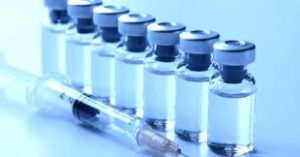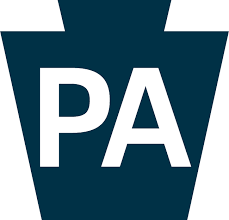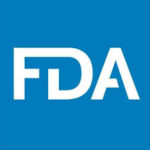PA Health Policy Update for the Week of November 8-12
The following is an update of selected state health policy developments in Pennsylvania for the week of November 8-12, 2021. (Some of the language used below is taken directly from state documents.)
Governor Wolf
Governor Wolf announced his intention to return the decision on mask requirements in K-12 schools to local leaders on January 17, 2022. It may not take that long, though: as the Philadelphia Inquirer reports, Pennsylvania’s Commonwealth Court “…has struck down the state’s school mask mandate, ruling that acting Health Secretary Alison Beam didn’t have the authority to issue the requirement under the state’s Disease Control and Prevention Law.” The Department of Health is appealing the court’s decision.
 General Assembly
General Assembly
- The House of Representatives passed House Bill 1561 and House Bill 1563 on third and final consideration this week. These bills amend the Mental Health Procedures Act and the Drug and Alcohol Abuse Control Act, respectively, to align them with HIPAA and give providers, facilities, and insurers the ability to more easily share patient mental health and substance use disorder treatment information. Both bills were sent to the Senate and referred to its Health & Human Services Committee.
- The Senate Majority Policy Committee held an informational meeting this week to examine COVID-19 vaccine mandates and their impact on the workforce. Testimony offered at the hearing and a video recording may be viewed here.
- The Senate Health & Human Services Committee met twice this week and favorably reported the following bills:
- Senate Bill 471, which prohibits the implementation of COVID-19 vaccine mandates;
- House Bill 220, which specifies that a person does not need to test positive for drugs to begin addiction treatment; and
- Senate Bill 938, which clarifies the Department of Drug and Alcohol Programs’ ability to promulgate rules and regulations and makes them subject to the regulatory review process, including publication, notice, and comment.
Recordings of both committee meetings may be viewed here.
- The Senate Aging & Youth Committee favorably reported House Bill 1260, which increases the maximum income eligibility limits for PACENET from $27,500 to $33,500 for individuals and from $35,500 to $41,500 for married couples.
Department of Human Services
 The Department of Human Services has issued updated requirements on the information needed to evaluate prior authorization requests for certain medications, based on actions taken by its Pharmacy and Therapeutics Committee during its September 14 meeting:
The Department of Human Services has issued updated requirements on the information needed to evaluate prior authorization requests for certain medications, based on actions taken by its Pharmacy and Therapeutics Committee during its September 14 meeting:
- chronic obstructive pulmonary disease agents
- botulinum toxins
- erythropoiesis stimulating agents
- gastrointestinal motility agents
- HIV/AIDS antiretrovirals
- immunomodulators, atopic dermatitis
- migraine acute treatment agents
- migraine prevention agents
- glucocorticoids, inhaled
- hepatitis C agents
- lipotropic
- monoclonal antibodies
- multiple sclerosis agents
- opioid dependence treatments
- pituitary suppressive agents
Department of Health
The Department of Health (DOH) has issued a health advisory echoing the federal decision that a pediatric formulation of the Pfizer vaccine has been approved for children from the ages of five to 11.
DOH has announced that information on schools participating in a free and voluntary COVID-19 screening testing program, which is available through a partnership with the company Gingko Bioworks, is now available on its web site. Go here for the DOH announcement and here for information about the program.
COVID-19: By the Numbers
- The general downward trend in new daily COVID-19 cases in Pennsylvania halted over the past week with several days of more than 5000 new cases. The state’s total number of COVID-19 cases since the start of the pandemic surpassed 1.6 million this week – a figure that represents approximately 12 percent of the state’s population.
- The number of new COVID-19-related deaths remains high. 196 new deaths were reported on Wednesday – the highest single-day figure since late January. This week Pennsylvania surpassed 32,000 COVID-19-related deaths.
- The number of Pennsylvanians hospitalized because of COVID-19 has fallen five percent since the beginning of November; the number in hospital ICUs has fallen nine percent; and the number on ventilators because of the virus has fallen 11 percent.
- 72.8 percent of Pennsylvanians 18 years of age and older are now fully vaccinated – more than 6.5 million people. 70,000 Pennsylvanians were recorded as completing a vaccine regimen in the past week.
 Stakeholder Events
Stakeholder Events
Pharmaceutical Assistance Advisory Board – November 15
The Department of Aging’s Pharmaceutical Assistance Advisory Board will hold a virtual meeting on Monday, November 15, 2021 at 8:30 a.m. To participate virtually or by phone, go here for further information.
Health Research Advisory Committee – November 15
The Department of Health’s Health Research Advisory Committee will hold a virtual public meeting on Monday, November 15 at 1:00 p.m. For information on how to attend virtually, see this Pennsylvania Bulletin notice.
Pennsylvania Rural Health Redesign Center Authority Board – November 16
The Department of Health’s Pennsylvania Rural Health Redesign Center Authority Board, which is charged with administering the Pennsylvania Rural Health Model, will hold a virtual public meeting on Tuesday, November 16 at 10:00 a.m. For information on how to attend virtually, see this Pennsylvania Bulletin notice.
Newborn Screening and Follow-Up Technical Advisory Board – November 18
The Department of Health’s Newborn Screening and Follow-Up Technical Advisory Board will hold a virtual public meeting on Thursday, November 18 at 10:00 a.m. For information on how to attend virtually, see this Pennsylvania Bulletin notice.
Medical Assistance Advisory Committee’s Managed Long-Term Services and Supports Subcommittee Meeting – December 2
The Medical Assistance Advisory Committee’s managed long-term services and supports subcommittee will hold a virtual public meeting on Thursday, December 2 at 10:00 a.m. To register to participate, go here.



 Governor Wolf
Governor Wolf Independent Regulatory Review Commission
Independent Regulatory Review Commission Around the State
Around the State Department of Health
Department of Health Department of Drug and Alcohol Programs
Department of Drug and Alcohol Programs Over the weekend, House Speaker Michael Turzai changed the House of Representatives’ session schedule to hold a non-voting session day today and a voting session day tomorrow in an effort to enable Republicans to move forward with relief efforts for businesses related to the COVID-19 crisis. There has been speculation that if a quorum is present the Speaker may seek to suspend temporary House rules permitting remote voting to ease the passage of Republican-sponsored relief measures for businesses affected by limits on their ability to operate during the COVID-19 emergency. The House also has canceled its session for Wednesday and Thursday of this week.
Over the weekend, House Speaker Michael Turzai changed the House of Representatives’ session schedule to hold a non-voting session day today and a voting session day tomorrow in an effort to enable Republicans to move forward with relief efforts for businesses related to the COVID-19 crisis. There has been speculation that if a quorum is present the Speaker may seek to suspend temporary House rules permitting remote voting to ease the passage of Republican-sponsored relief measures for businesses affected by limits on their ability to operate during the COVID-19 emergency. The House also has canceled its session for Wednesday and Thursday of this week. Children’s Health Insurance Program
Children’s Health Insurance Program Department of Health and Human Services
Department of Health and Human Services The FDA has released guidance on its
The FDA has released guidance on its  MACPAC has written to CMS administrator Seema Verma to express its concern that the manner in which CMS has chosen to distribute $30 billion of the $100 billion designated in the CARES Act for hospitals and health care providers “…does not account for the real and pressing concerns of safety-net providers that are on the frontlines of serving the nation’s poorest and most vulnerable people…” MACPAC also asks Ms. Verma to “…ensure that safety-net providers, including hospitals considered deemed disproportionate share hospitals (DSH) for the purpose of Medicaid payment…children’s hospitals, and other providers serving Medicaid and other low-income patients have access to federal funds made available through the CARES Act without delay.” See the MACPAC letter
MACPAC has written to CMS administrator Seema Verma to express its concern that the manner in which CMS has chosen to distribute $30 billion of the $100 billion designated in the CARES Act for hospitals and health care providers “…does not account for the real and pressing concerns of safety-net providers that are on the frontlines of serving the nation’s poorest and most vulnerable people…” MACPAC also asks Ms. Verma to “…ensure that safety-net providers, including hospitals considered deemed disproportionate share hospitals (DSH) for the purpose of Medicaid payment…children’s hospitals, and other providers serving Medicaid and other low-income patients have access to federal funds made available through the CARES Act without delay.” See the MACPAC letter  Governor Wolf
Governor Wolf The Department of Human Services (DHS) has published a reminder that
The Department of Human Services (DHS) has published a reminder that  During her daily briefing today, Secretary Levine reported that the number of new COVID-19 cases in Pennsylvania yesterday declined slightly from the day before, although she dismissed this decline as “not statistically significant.” There are now COVID-19 cases in 50 of Pennsylvania’s 67 counties. While the number of hospitalizations, ICU cases, and patients put on ventilators remain low, she said those numbers remain in line with trends elsewhere in the country and her department’s own projections.
During her daily briefing today, Secretary Levine reported that the number of new COVID-19 cases in Pennsylvania yesterday declined slightly from the day before, although she dismissed this decline as “not statistically significant.” There are now COVID-19 cases in 50 of Pennsylvania’s 67 counties. While the number of hospitalizations, ICU cases, and patients put on ventilators remain low, she said those numbers remain in line with trends elsewhere in the country and her department’s own projections. The Department of Health and Human Services has provided guidance to states asking them to take immediate action to
The Department of Health and Human Services has provided guidance to states asking them to take immediate action to  The FDA established
The FDA established  The Families First Coronavirus Response Act, signed into law on March 18, includes a temporary 6.2 percentage point increase in the federal medical assistance percentage (FMAP: the rate at which the federal government matches state Medicaid expenditures). A new CMS FAQ provides information about the state Medicaid expenditures to which the increase applies, its applicability to Medicaid DSH payments, the duration of the supplemental funding, and more. Find this FAQ
The Families First Coronavirus Response Act, signed into law on March 18, includes a temporary 6.2 percentage point increase in the federal medical assistance percentage (FMAP: the rate at which the federal government matches state Medicaid expenditures). A new CMS FAQ provides information about the state Medicaid expenditures to which the increase applies, its applicability to Medicaid DSH payments, the duration of the supplemental funding, and more. Find this FAQ